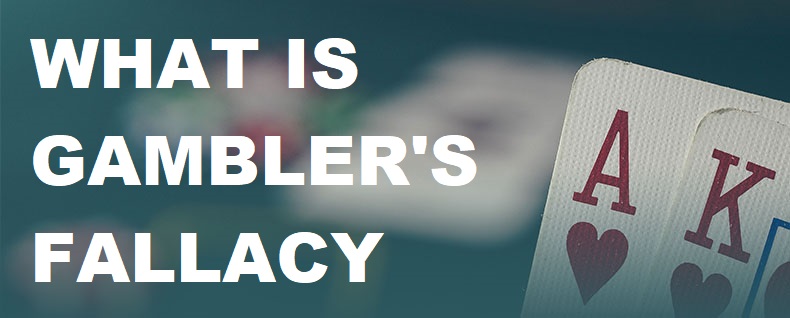Ad Disclaimer!
Boku Slots is an affiliation website. We help you find gambling sites where you can play with real money.
Many or all of the products and brands featured here are from our partners who compensate us. This may influence how the product or brand appears on a page. However, this does not influence our evaluations. Our opinions are our own.
The information on this page, including operator and game details, is updated regularly but subject to change.
We find that there are two types of gamblers, one who believes in strategy when they play and the other who believes in luck. Most of us can easily fall for the feeling that we have an element of control as we bet, when in reality it is all down to the casino game odds and the Random Number Generator (RNG).
You may feel like you make completely logical decisions when you wager, but the truth is you will always have biases which will influence the way in which you play. One of the biggest misconceptions that most players have, which can influence the outcome of your game is known as the ‘gamblers fallacy’. So, what is the gamblers fallacy and why should you avoid it?
What is the Gambler’s Fallacy
Also known as the Monte Carlo fallacy, the gambler’s fallacy is a belief shared by many people and it can be one of two ways.
- Firstly, if you have won frequently in the past, then your odds of winning are less likely to happen again in the future.
- Whereas if you haven’t won as frequently in the past, then your odds of winning in the future is more likely.
The crux of it is, that the results of your past gambling have an influence over your future possibility of winning and that the event isn’t simply random. Obviously, these beliefs are inaccurate, and your past plays will have no effect on any future games. But this fallacy is more ingrained into our modern gambling culture than we like to think.
The term Monte Carlo fallacy came from the famous study in 1913 within the Monte Carlo casino in Las Vegas. During the experiment using a roulette wheel, the ball had fallen on black a number of times in a row. Because of this, with each spin of the wheel, more and more players believed that the ball would fall on red. In fact, the next time the ball landed on a red square was the 27th turn, and by that point many players had lost a substantial amount of money.
Examples of the Gambler’s Fallacy

The easiest way to explain this belief is by considering the flipping of a coin, and how the way it lands can be interpreted. If you flip a coin five or six times and it landed the same way (say heads) each time, then a player can assume that the next coin toss can land one of two ways.
- Because the coin landed heads each time, then it will probably be heads on the next toss.
- Because the coin has landed heads each time, then it will probably land on tails on the next toss.
The fact that people attempt to predict the result of the coin toss shows gambler’s fallacy, because in reality none of the previous times matter. Every time you throw that coin, the odds are the same, they don’t change higher and lower depending on the previous results.
The Problem with Gambler’s Fallacy
If you’re reading this and you realise that this is how you tend to think when you’re gambling, then your next question will be ‘but is it a problem?’. The short answer is yes, because players who are on a losing streak may continue adding more and more credit waiting for that turn around in luck. This can lead to them spending far more money than they had anticipated and maybe even pushing themselves into debt. Some even bet bigger and take on more risks believing that their bad luck will end soon.
The hope that as you play, you’re pushing the odds onto your side, will never end well for a player. A better way to think about your gaming time, is that each spin of the reel, or roll of the dice is a completely independent turn and has no bearing on any past or future go.
How to Avoid it
The key to avoiding being a victim of the gambler’s fallacy is knowing about it, so the fact you’re reading this guide is a good start. The next step is being conscious as you play and gamble because you need to remind yourself that each wager is completely new and there is no pattern.
We would also advise protecting yourself by setting a maximum credit amount to wager during that gaming session. Obviously, the difficulty here is making sure you stick to it, but many sites offer the ability to set deposit limits for specific periods of time. You can also create a new bank account with expendable income which is only for betting. Then if you use it up, you won’t have spent money needed for essentials such as rent, bills and food.
Summary of What is the Gambler’s Fallacy and Why Should you Avoid It?
For those of you reading this and believing that you wouldn’t fall for this way of thinking, then maybe consider this the next time you play. People generally don’t like randomness so it’s incredibly easy to try and seek out patterns, because our brains want to create some sort of rational decision making. Instead, you may be falling for cognitive bias, so this is something you should consciously identify as you play and try to avoid.
There’s also for many of us a belief that the universal will ‘self-correct’ and that we will be given a fair and balanced chance to win our money back. Sadly, this simply isn’t true and as a responsible gambler your focus should remain on keeping to your predetermined budget and making sure your gambling time is fun. When it stops being about having fun and focuses more on the need to win, then you should remove yourself from the site and seek support from the likes of GamCare and Be Gamble Aware.
As well as this guide we have others including Online Bingo – Is It Fixed, Why are Online Casinos Better Than Land Based Casinos and Things to Avoid When You’re Gambling Online.





